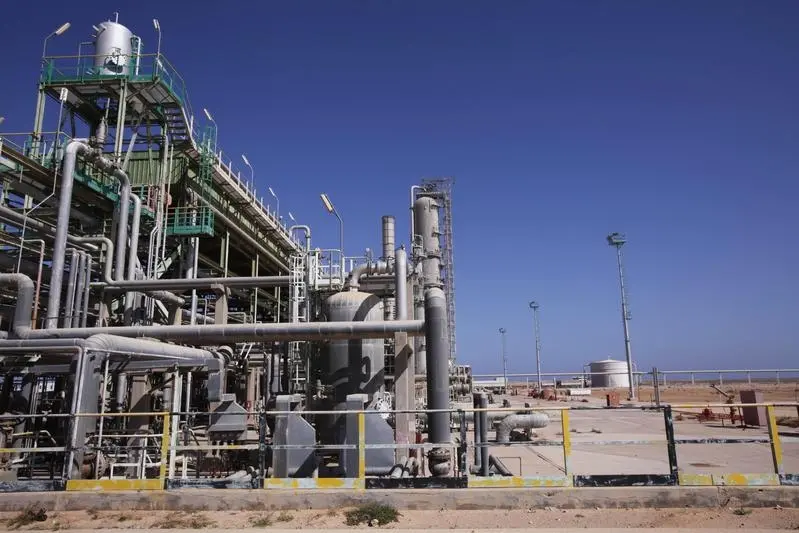PHOTO
By Aidan Lewis
TRIPOLI, May 17 (Reuters) - The head of Libya's National Oil Corporation (NOC) is determined to fend off an attempt by the U.N.-backed government to appropriate energy sector powers, and says settling a related dispute with Germany's Wintershall is a "top priority".
In an interview with Reuters, NOC Chairman Mustafa Sanalla also said output from NOC subsidiary Waha Oil Co could rise by some 80,000 barrels per day (bpd) in coming weeks and that staff had returned to parts of the Sirte basin for the first time in more than two years.
National output dipped this week due a power outage affecting Messla and Sarir oil fields and on Wednesday stood at 683,000 bpd, Sanalla said, but was expected to return to its "normal" level of 800,000-820,000 bpd over the next two days.
That is more than three times higher than Libya's output in mid-2016, though just half of what the OPEC member was producing before its 2011 uprising. The NOC has had to navigate local blockades, conflict, and a political split between eastern and western-based factions as it tries to revive its operations.
It pledged to work with the U.N.-backed Government of National Accord (GNA) when it arrived in Tripoli last year. But relations soured over NOC budget payment disputes, and after the GNA's leadership issued a decree this year granting itself powers over energy contracts.
Sanalla says this was done in order to help Wintershall , which he says has been refusing to honour an agreement to move from an expired concession contract to a production sharing deal, and is liable for up to $1 billion in lost NOC revenue.
The German company says its concessions are still valid, that it is in contact with the NOC, and that "there is no claim over money allegedly owed by Wintershall." The GNA has not commented.
"I think this Wintershall issue is a disaster from a political point of view and this shows everybody that the politicians try to control NOC, try to interfere in the oil sector," Sanalla said. "I am concerned that they are not going to stop their attempts to control NOC for their agenda."
He said the GNA had tried to implement its decree but had not been able to, and that he was happy a court in the east Libyan city of Benghazi on Monday upheld an NOC appeal against the resolution.
WINTERSHALL DISPUTE PRIORITY
Sanalla said he would "never permit" the GNA's move, and would fight to defend the NOC from political conflict until there was a free election in Libya. "We are a state oil company and we cannot compromise on our rights."
The NOC says the Wintershall dispute is locking in 150 standard cubic feet of gas production and 160,000 bpd of oil, including 70,000 from Rimel and Abu Attifel fields operated by NOC and Italy's ENI. If it is resolved, that - along with additional production from Waha - would bring total output well over 1 million bpd, Sanalla said.
"Our plan is that hopefully we can pass 1 million (bpd) … five weeks, six weeks from now," he said.
"Solving this dispute with Wintershall is a top priority for me."
Sanalla said he had appointed a team to study options for bringing output from Al-Rimal and Abu Attifel online if the Wintershall dispute continues. "We have to think out of the box, but there are many technical obstacles."
He said NOC teams had returned to the western Sirte basin for the first time since March 2015, where infrastructure was damaged by attacks by Islamic State militants and theft.
"Now we are happy with the security, our staff are happy, they're there, and also they're keen, they're eager to work," Sanalla said, adding he hoped production at Waha Oil Co's Gialo field could restart within a month.
"We work very hard to repair the infrastructure, especially the pipeline network which was in bad shape due to a long shutdown." (Additional reporting by Vera Eckert in Frankfurt; Editing by Mark Potter)
© Reuters News 2017





















